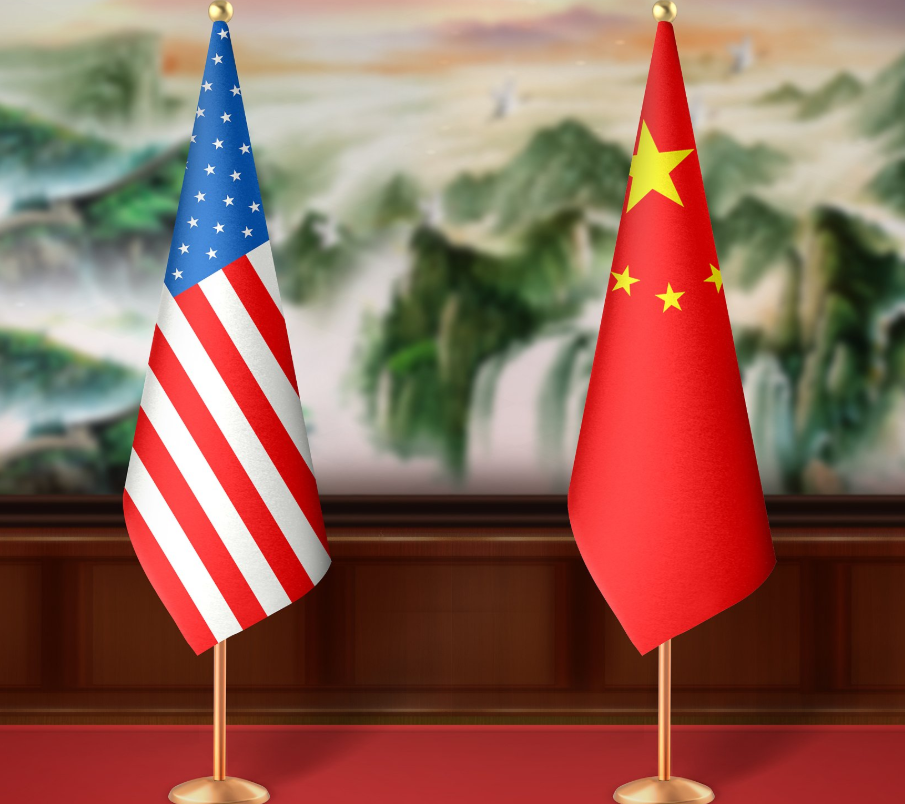US China Trade Talks Stall Amid Rising Tensions:The recent U.S.-China trade talks concluded without resolving key tariff issues, as deeper geopolitical concerns took center stage. Treasury Secretary Scott Bessent raised alarms over China’s ties with Iran and Russia, its control over global ports including the Panama Canal, and ongoing tensions around fentanyl, semiconductors, and artificial intelligence. With national security now deeply intertwined with economic negotiations, the talks reflect a broader U.S. strategy to “de-risk” from China rather than fully decouple.
US China Trade Talks Stall Amid Rising Tensions Over Security
The latest round of high-stakes trade negotiations between the United States and China concluded yesterday without any significant breakthrough, particularly on the issue of tariffs. As the August 12 deadline approaches for a new round of reciprocal tariffs, the two global powers appear entrenched in a broader conflict that extends far beyond trade and into national security, technological dominance, and geopolitical influence.
US China Trade Talks Stall Amid Rising Tensions: U.S. Treasury Secretary Scott Bessent characterized the talks as “constructive” but also raised several serious concerns. These included China’s global industrial overcapacity, its continued purchases of Iranian oil (which reportedly accounts for 90% of Iran’s exports), and the alleged sale of $15 billion in dual-use technology to Russia.
Despite these heavy issues, Secretary Bessent maintained a cautiously optimistic tone, suggesting that communication channels remain open and that President Trump may even extend the current pause on tariff escalations beyond the August deadline.
US China Trade Talks Stall Amid Rising Tensions:However, the context of these trade talks has drastically shifted. As Maria Bartiromo of Fox Business highlighted, the negotiations now encompass far more than trade policy—they touch upon vital national security matters. The U.S. administration has explicitly linked trade to China’s relationships with Iran and Russia, its role in the fentanyl crisis, and its actions regarding Taiwan. All of these issues represent core American security concerns.
Experts, including a Senior Fellow for China Policy at the Heritage Foundation, noted that while the tone of the talks may have been constructive, the fundamental tensions in the U.S.-China relationship remain unresolved. The administration, however, has made it clear that trade cannot be separated from broader strategic issues.

For instance, the ongoing presence of U.S. tariffs on China is directly tied to China’s role in the supply of precursor chemicals for fentanyl—an epidemic that has hit American families hard. Thanks to tightened border controls under the Trump administration, the flow of these substances has reportedly slowed.
US China Trade Talks Stall Amid Rising Tensions:A significant geopolitical flashpoint also emerged around the Panama Canal. A failed deal to sell several key international ports—including those near the Panama Canal—to a U.S.-led consortium involving BlackRock opened the door for China to expand its influence in the region. Chinese interest in the deal prompted concerns in Washington, especially after signs written in Chinese were observed around canal zones.
US China Trade Talks Stall Amid Rising Tensions:President Trump, in a prior interview with Maria Bartiromo, condemned the Carter administration’s decision to transfer control of the canal to Panama and expressed alarm at its current association with Chinese entities. Trump emphasized his preference for American companies like BlackRock over any Chinese-controlled interests and warned that “we’re taking the Panama Canal back” if Chinese influence continues to grow.
US China Trade Talks Stall Amid Rising Tensions:These developments reflect China’s aggressive push to extend its global reach, particularly in maritime logistics and infrastructure. Officials warned that China’s repeated attempts to downplay its role through shell companies like the Hong Kong-based Hutchison Ports are misleading and underscore its deeper strategic aims. The Biden administration has since taken steps to reassess port ownership and influence, but the situation remains fluid and unresolved.
US China Trade Talks Stall Amid Rising Tensions:Technology and artificial intelligence represent another major front in this geopolitical contest. Just one week after President Trump signed the A.I. Action Plan aimed at bolstering domestic development, China pushed for international compliance standards on A.I. The timing is seen by many as a direct response to U.S. moves. Meanwhile, companies like NVIDIA continue to export older generation chips to China, raising concerns in Washington about whether such actions undermine efforts to reduce strategic dependencies.
US China Trade Talks Stall Amid Rising Tensions:While some argue these chip exports are a temporary concession, others worry it signals a strategic backslide. National security advocates insist that America must maintain leadership in non-Chinese technologies and ensure that U.S. values—not Chinese state control—form the foundation of global A.I. infrastructure. The administration’s messaging emphasizes “de-risking” rather than full economic decoupling, though public and congressional sentiment is increasingly tilted toward firmer action.
US China Trade Talks Stall Amid Rising Tensions:In summary, the U.S.-China relationship today is defined by far more than trade deficits or tariff structures. National security, technology, foreign policy alliances, and control over strategic assets like ports and semiconductors are all in play. While the recent talks avoided overt breakdown, they did little to resolve the core issues. The weeks ahead—especially leading up to the August 12 tariff deadline—will be critical in determining whether diplomacy can prevail or whether tensions will escalate further.
Disclaimer
This article is for informational purposes only and does not constitute investment, political, or legal advice. Readers are advised to seek professional counsel for specific concerns.

